Commercial Electrical Cost Per Square Foot
In the world of commercial real estate, electrical systems play a pivotal role in determining the functionality and cost-efficiency of a building. The electrical infrastructure of a commercial property varies greatly based on the type of business it houses and the specific operations carried out within its walls. One crucial factor that property owners and developers must consider is the cost of electrical wiring per square foot. In this article, we will delve into the intricacies of commercial electrical cost, explaining why it can range from $5 to $18 per square foot and how various business-specific factors influence these expenses.
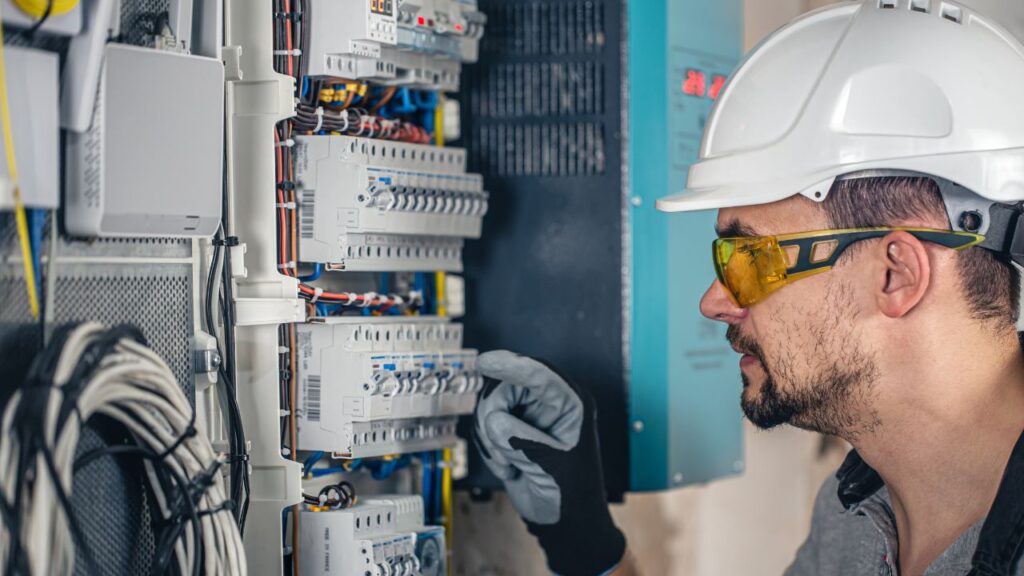
Understanding Commercial Electrical Wiring Costs
Residential vs. Commercial: What Sets Them Apart?
Before we delve into the cost breakdown, it’s essential to understand the fundamental differences between electrical wiring for residential and commercial properties. While both require electrical systems to function, the demands placed on these systems differ significantly.
Are You Looking For?
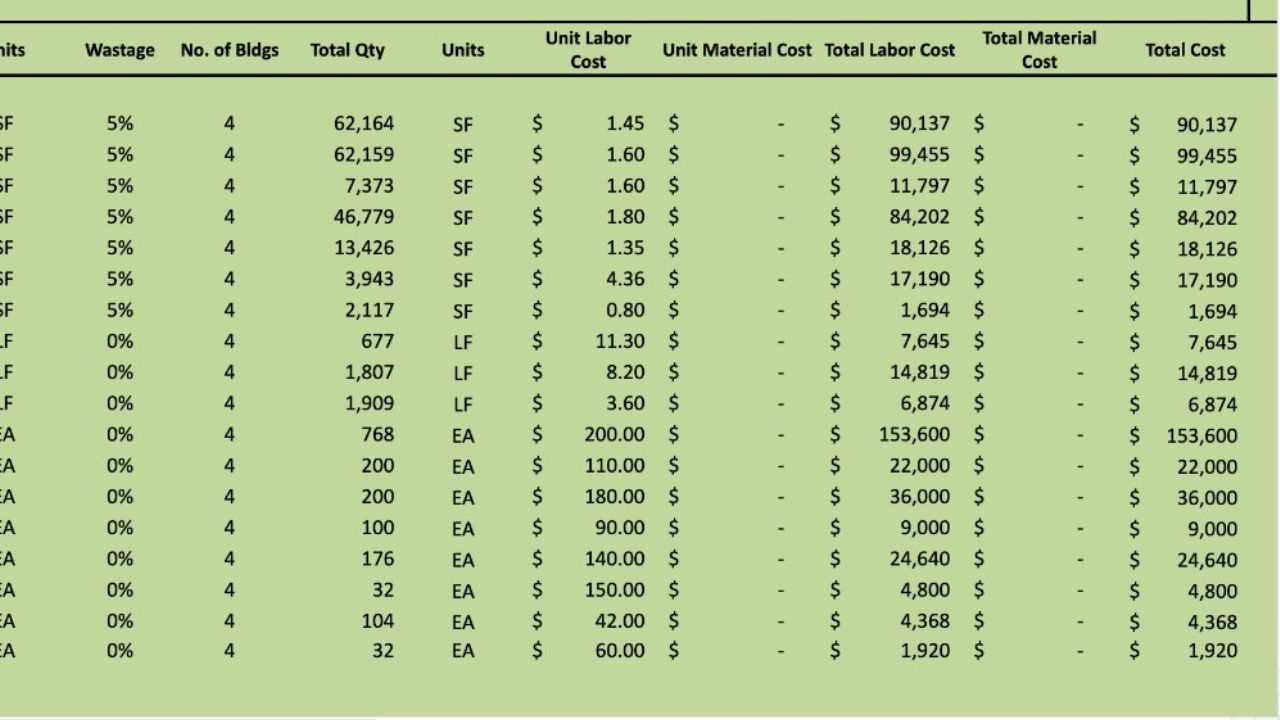
Commercial Electrical Installation
ZIP Code Based Estimate
Highly Accurate
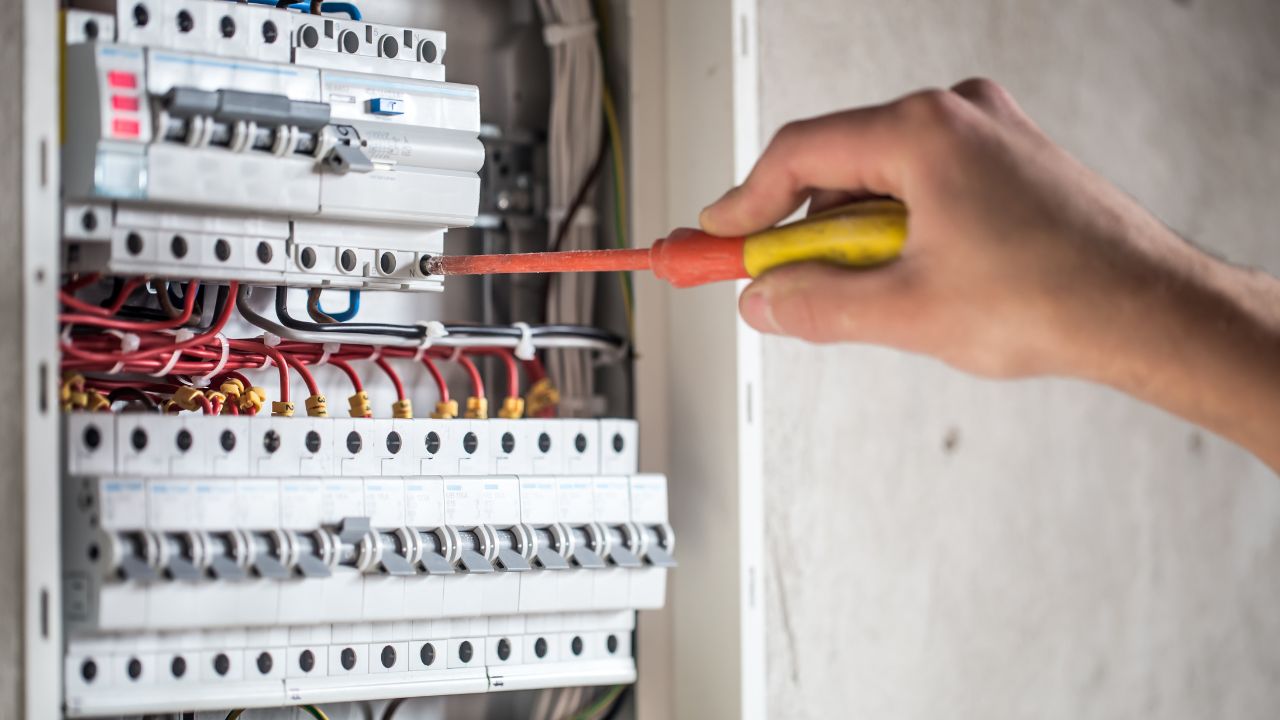
Fully Insured Licensed Electrical Contractors
Hire Contractor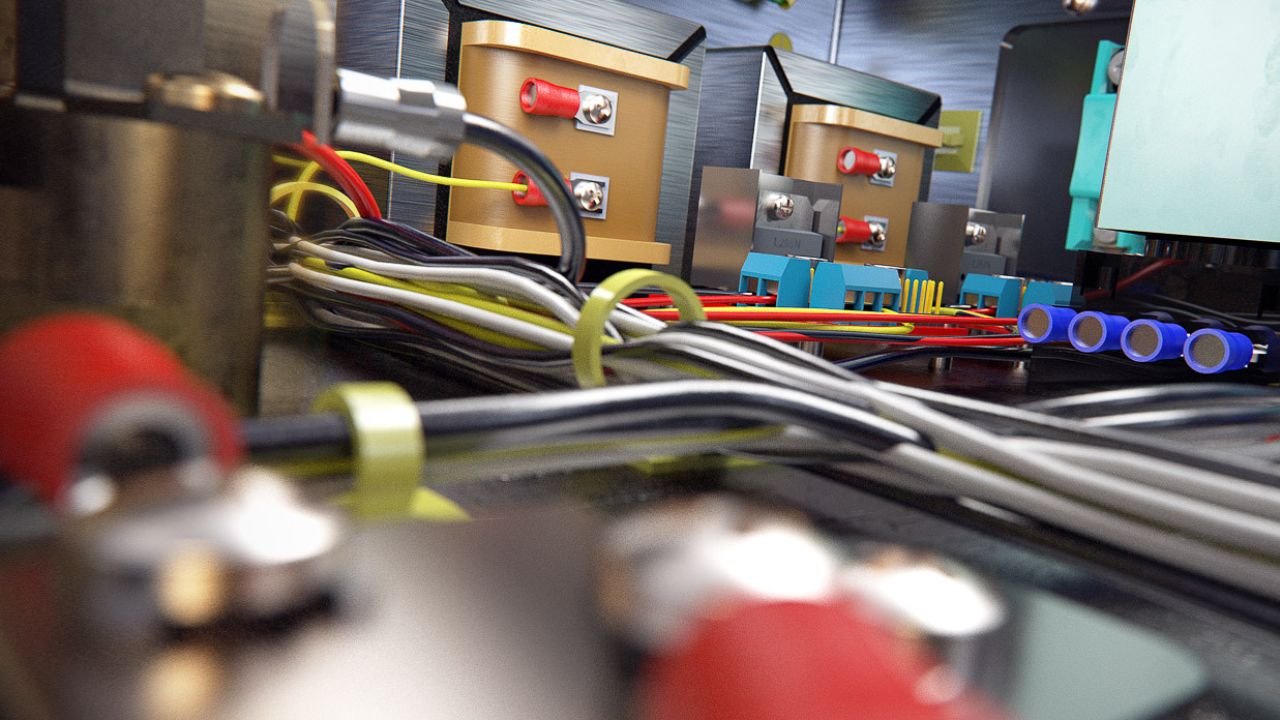
Make Informed Design Decisions
Showcase Your Design Ideas
Residential Wiring
Residential properties are where families reside, and their electrical systems primarily cater to the needs of individual homeowners and their families. These systems power basic household functions, such as lighting, appliances, and personal devices. As a result, residential electrical systems tend to have lower energy demands and, consequently, lower costs per square foot.
Commercial Wiring
In contrast, commercial properties are designed to serve a wide range of business needs. Whether it’s an office space, hospital, manufacturing unit, or a retail store, commercial buildings have heavy-duty power demands. This means they require more robust and complex electrical systems to accommodate various operational needs, including industrial machinery, high-powered computers, specialized lighting, and HVAC systems. These demands lead to higher costs per square foot.
The Cost Range
The cost of wiring a commercial building can fluctuate substantially, typically falling within the range of $5 to $18 per square foot. This range is influenced by several key factors.
Building Type
The type of commercial building you’re dealing with is a significant determinant of electrical wiring costs. For example, setting up an electrical system for a hospital will cost more per square foot than wiring an office building. Hospitals have specific electrical needs, such as extensive backup power systems, specialized equipment, and stringent safety requirements. These complexities drive up the overall cost. Similarly, an industrial facility may require even more intricate electrical systems to handle the machinery and equipment needed for manufacturing processes, leading to higher costs.
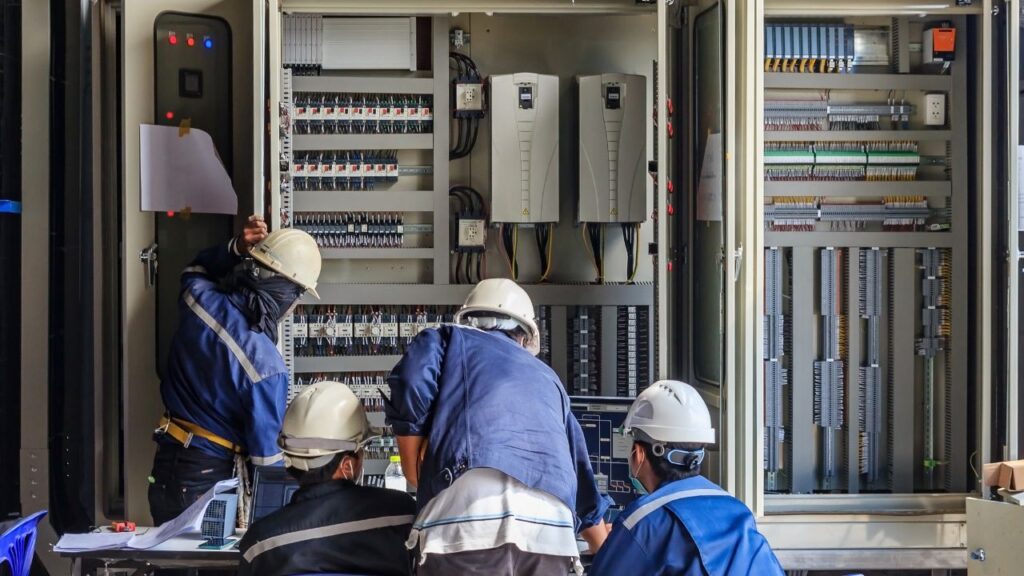
Electrical Load
The electrical load is the amount of electricity a building consumes during peak hours. Businesses with high electrical loads, such as manufacturing facilities, data centers, and large retail stores, require more substantial electrical systems. These systems must support heavy machinery, multiple computers, and extensive lighting, resulting in higher costs per square foot.
Wiring Materials
The choice of wiring materials can also impact the cost. While copper wiring is highly efficient and durable, it’s more expensive than aluminum wiring. Copper wiring is often preferred for its superior conductivity and durability, making it a suitable choice for long-term cost savings. However, in some cases, aluminum wiring may be more budget-friendly while still meeting the necessary standards.
Local Building Codes and Regulations
Different locations have distinct building codes and regulations. Compliance with these codes is non-negotiable, and it can significantly influence the cost of your electrical project. Some areas might have stricter requirements for safety and energy efficiency, necessitating more intricate and costly wiring solutions to meet these standards. This may include additional fire protection measures or the use of specialized electrical components.
Hire a Commercial Electrical Contractor
We provide commercial electrical estimating services for small and big construction projects. We analyze the costs of commercial electrical works like HVAC Wiring System, Solar Power System, Electronic Door Reader, Communication cabling system, etc.
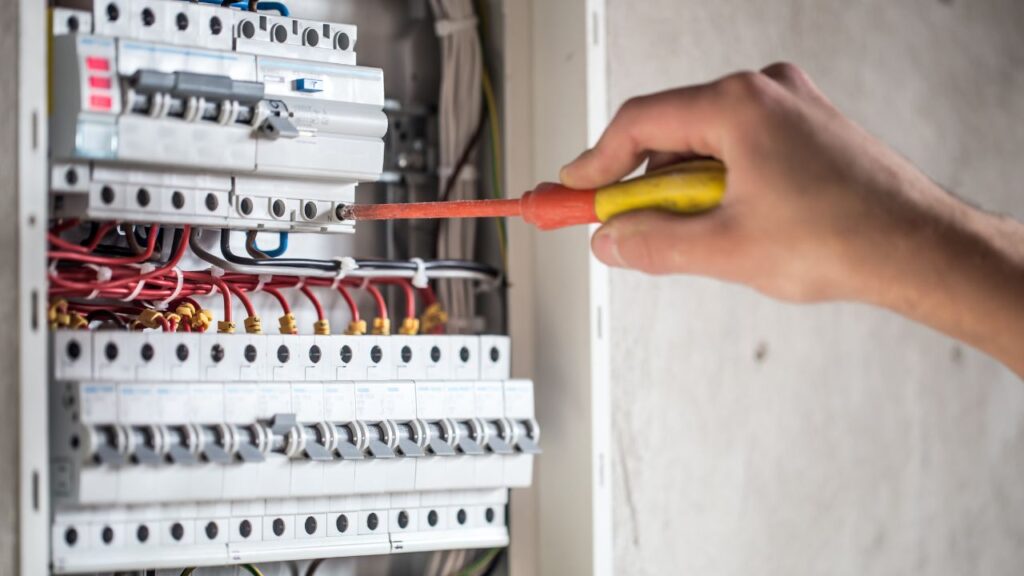
Geographic Location
Geographic location can also play a role in cost variation. The cost of labor and materials can differ significantly from one region to another. Urban areas tend to have higher labor costs, while remote or rural locations may have challenges in accessing materials, both of which can affect the overall price per square foot. Additionally, local economic conditions and market competition can influence pricing. In some cases, working in remote areas may require logistical considerations, such as transporting materials and personnel, leading to higher costs.
Business-Specific Factors
To get a more accurate estimate of the electrical wiring cost for your commercial building, you should consider specific factors that are unique to your business.
Specialized Equipment
Certain businesses require specialized equipment that demands unique electrical setups. For example, a data center will need robust electrical infrastructure, including backup generators and redundant power supplies to ensure continuous operation. On the other hand, a restaurant with a commercial kitchen will have different electrical needs, including heavy-duty ovens, refrigeration units, and ventilation systems. These specifics can drive up costs as they require specialized systems and components. The cost of specialized equipment should be factored into your overall electrical budget.
Energy Efficiency Goals
If your business is committed to energy efficiency and sustainability, it may involve additional costs for advanced technologies. This can include the use of LED lighting, energy-efficient HVAC systems, and smart energy management systems. While these technologies may have higher upfront costs, they can result in long-term savings on energy bills and reduce the environmental footprint of your business. Be prepared for these initial expenses, as they can lead to significant operational savings over time.
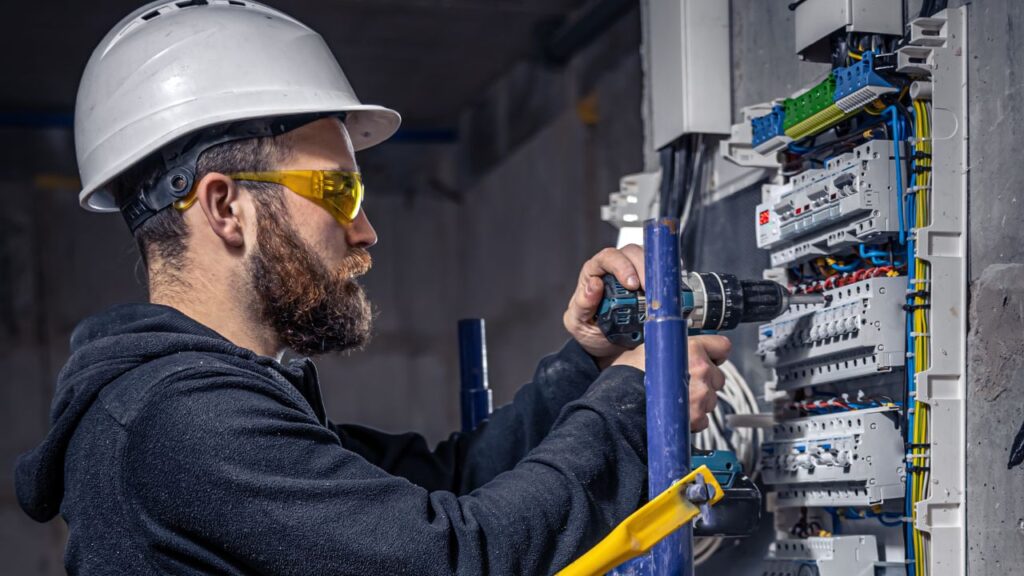
Expansion Plans
Consider your business’s growth potential. Planning for future expansions in the initial electrical design can save you money in the long run, as you won’t have to overhaul the entire system when you expand. Discuss your long-term goals with your electrical contractor to create a scalable system that accommodates future growth without requiring extensive and costly modifications. This forward-thinking approach can prevent the need for major renovations in the future, ensuring your electrical system remains efficient and cost-effective.
Conclusion
In the world of commercial real estate, understanding the cost of electrical wiring per square foot is essential for property owners and developers. The average range of $5 to $18 per square foot is influenced by a myriad of factors, including building type, electrical load, wiring materials, local regulations, and geographic location. Additionally, business-specific factors like specialized equipment, energy efficiency goals, and expansion plans play a crucial role in determining the final cost. By carefully considering these factors and working with experienced professionals, you can ensure that your commercial property’s electrical system meets your needs while staying within your budget.
FAQs
The typical cost of electrical wiring for an office building falls within the range of $8 to $12 per square foot, but this estimate can vary based on factors such as location, wiring materials, and the complexity of the electrical system. Office buildings generally have lower electrical loads compared to other commercial properties, resulting in a lower cost per square foot.
To reduce costs, consider energy-efficient solutions, plan for future expansions, and choose the right materials. Working with a knowledgeable electrical contractor can also help you find cost-effective options and ensure your system meets your business needs. Additionally, exploring local incentives and rebates for energy-efficient systems can provide financial relief and help offset initial expenses.
Yes, some regions offer tax incentives and rebates for businesses that invest in energy-efficient electrical systems. These incentives can help offset the initial costs and provide long-term savings. It’s advisable to check with local authorities and agencies for specific details and available incentives in your area.
Yes, it’s possible to upgrade the electrical system in an existing commercial building. However, the feasibility and cost of such an upgrade will depend on the building’s current infrastructure, local regulations, and your specific needs. Consult with electrical professionals to assess the best approach for your upgrade, which may include modernizing the system, improving energy efficiency, and ensuring compliance with current standards.
To ensure compliance with local regulations, work with licensed electricians and contractors who are knowledgeable about the codes and standards in your area. They can help design and install a system that meets all requirements, passes inspections, and ensures the safety and functionality of your electrical infrastructure, preventing costly compliance issues down the line.
Process To Get Commercial Electrical Cost Estimate Report
Here I am going to share some steps to get a commercial electrical cost estimate report.
-
You need to send your plan to us.
You can send us your plan on info@estimatorflorida.com
-
You receive a quote for your project.
Before starting your project, we send you a quote for your service. That quote will have detailed information about your project. Here you will get information about the size, difficulty, complexity and bid date when determining pricing.
-
Get Estimate Report
We do commercial electrical cost estimating and prepare a detailed report for your project. At last you finalize the report and finish the project.
Google Reviews





